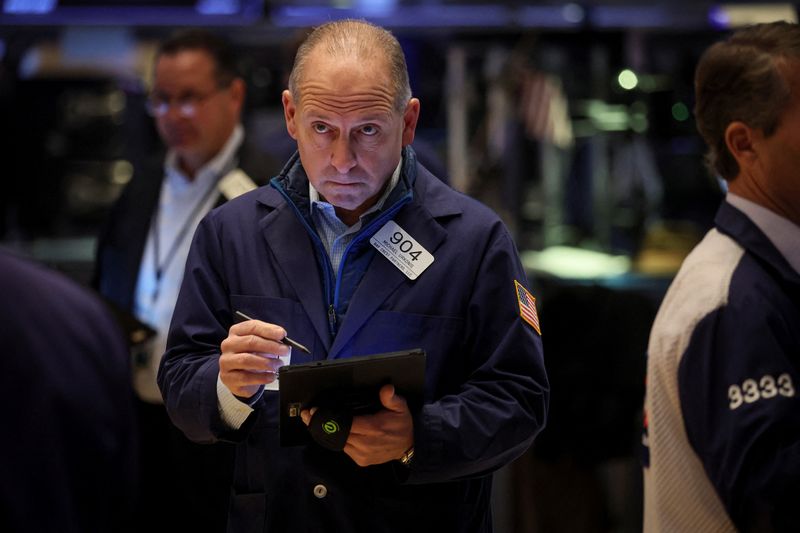Pepsi, Georgia, China, market is determined by the direction
2022.12.06 08:40
[ad_1]

Pepsi, Georgia, China, market is determined by the direction
Budrigannews.com – Georgia will decide the last U.S. Senate races, and President Joe Biden will announce that he will run for re-election in 2024. China announces that additional COVID-19 measures will be relaxed. After a surprisingly strong services PMI on Monday, stocks are still under pressure, Pepsi is reportedly laying off hundreds of employees, and oil prices hit their lowest level in a week ahead of U.S. inventory data later. This is the very thing you want to be aware in monetary business sectors on Tuesday, sixth December.
1. Georgia runoff to conclude the US midterm elections; Biden is expected to run for re-election. The final open seat in the U.S. Senate will be decided in a runoff between Democrat Raphael Warnock and Republican challenger Herschel Walker, a former NFL star.
A victory for Warnock would solidify the Democrats’ effective control of the Senate and cause a further setback for the Republicans’ caucus, which still hopes to reinstate Donald Trump as president in 2024. Trump was largely responsible for Walker’s nomination as the Republican candidate, but the former president has distanced himself in recent days, appearing to be wary of being too closely associated with a campaign that polls indicate will lose.
According to remarks made by Ron Klain, Trump’s chief of staff, Joe Biden, who will challenge Trump in 2020, is expected to announce that he will run for re-election in 2024. Biden, 80, is as of now the most established president in the U.S’s. history.
2. China loosens more COVID regulations, but the market rally stalls. China loosens more quarantine and testing regulations, moving further away from its Zero-COVID policy.
Negative tests will no longer be required to enter various public venues, but they will still be required to enter restaurants, bars, and nightclubs, according to the Chinese capital’s authorities. That occurs as a wave of outbreaks at the beginning of winter begins to recede, following a pattern established by other major cities like Shanghai and Shenzhen. From their peak in the latter part of November, official case numbers are now down by one-third.
Despite this, the rally in Chinese stocks and the took a break.
3. Stocks continue to be affected by the ISM Non-Manufacturing PMI; U.S. stocks are expected to open mixed after Pepsi layoffs are seen, still under pressure from a stronger-than-expected ISM reading on Monday that reminded investors of the likelihood of further Fed rate increases. Futures on interest rates now anticipate a Fed funds “terminal” rate above 5%.
were as well as were effectively flat at 06:30 ET (11:30 GMT). slid by 0.2%. On Monday, the three major cash indices had all lost between 1.4% and 1.9%.
PepsiCo (NASDAQ:), among others, are stocks that may come up later. after the Wall Street Journal said that hundreds of people in North America are set to work for it, mostly in the snacks and drinks industry. PepsiCo stands out from the cash-strapped tech companies that had garnered the majority of the layoff headlines because it was prominent among the businesses that had been able to expand its profit margins in the third quarter.
4. As Turkish authorities indicated that they will enforce the G7 price cap on Russian crude exports, a line of Russian oil tankers formed at the Bosporus Strait.
The tankers were unable to provide the marine insurance certification that is required to pass through the crowded straits, which are the entry point for oil from Russia’s Black Sea ports into international markets. Any Russian oil cargo purchased for more than $60 per barrel cannot be insured by EU businesses under the terms of the mechanism.
The mechanism to limit the flow of petrodollars used to finance Russia’s war in Ukraine was developed by the EU and the United States. It came into effect on the same day that Ukraine demonstrated that it could use drones to strike military targets deep inside Russia in an effort to alleviate the burden of the numerous missile attacks on its energy infrastructure.
5. Oil reaches a week-low; Due to API inventories, crude oil prices fell to their lowest level in a week as the market dealt with the G7 measures’ added complexity in delivering crude. The overall pause in the risk rally led by China also contributed to the decline.
The overall supply of crude to global markets could be hampered in the event that the Bosporus bottleneck persists for an extended period of time. However, it may also result in the redirection of additional Russian oil to export destinations where it must be priced lower to attract buyers.
Futures were down 1.3 percent at $75.97 a barrel by 06:45 ET, while futures were down 1.2 percent at $81.68 a barrel. At 16:30 EST, the American Petroleum Institute makes a report.








